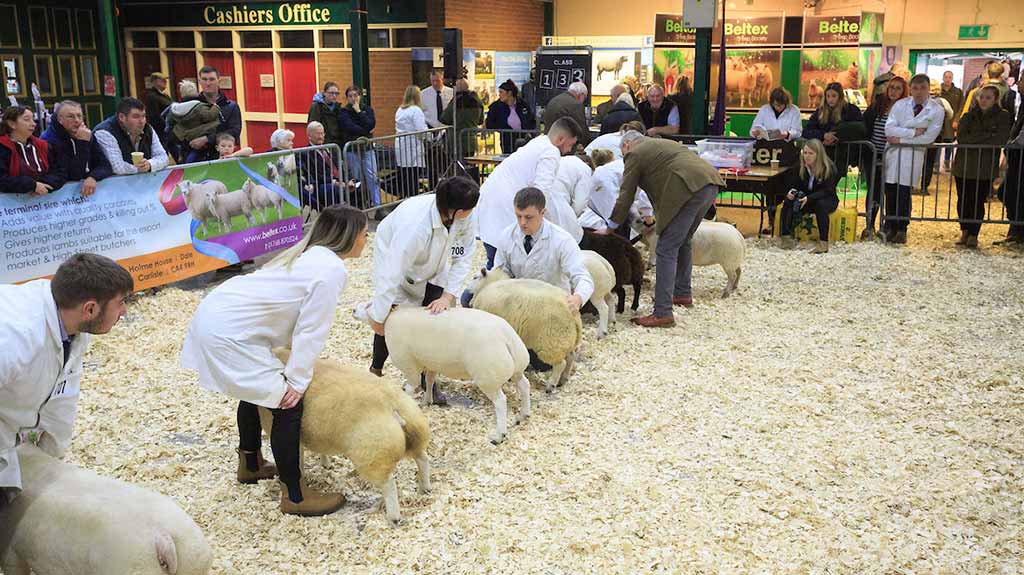English Winter Fair exhibitors advised to isolate sheep
 © Tim Scrivener
© Tim Scrivener Sheep farmers who exhibited stock at the English Winter Fair have been recommended to isolate their animals for at least four weeks following “an unconfirmed health issue” in the sheep section.
A Beltex sheep showing at the event, held at Bingley Hall, on the Staffordshire County Showground, in Stafford, on Sunday 19 November, is reported to have suddenly collapsed on leaving the showring.
An industry source told Farmers Weekly the duty vet was called and the sheep had been revived by the time they arrived, but later on the animal exhibited discomfort by rubbing on the side of its pen.
See also: 6 goals set to deliver UK sheep welfare strategy
The vet was recalled and took skin swabs for further investigation to establish if the sheep was infected by sheep scab, the source added.
The owner was advised to take the sheep home and isolate it.
All other exhibitors in the sheep section were given the same precautionary advice.
Show organisers, the Staffordshire and Birmingham Agricultural Society, sent a letter to all sheep farmers who exhibited sheep at the show.
It says: “There has been an unconfirmed health issue in the sheep section at this event.
“Any sheep not going direct to slaughter, the recommendation at this point is that any sheep removed from the site are isolated, for a minimum of four weeks, subject to further updates.”
Sheep ‘parasites’ probed
A spokesman for the society added that the health issue “refers to parasites”.
The results of the test are unknown, but precautionary measures are being taken on the advice of the official vet at the English Winter Fair.
The precautionary announcement for show exhibitors to isolate all sheep might affect those seeking to exhibit again at next week’s Royal Welsh Winter Fair Show on 27-28 November.
However, exhibitors are hopeful of an early resolution.
National Sheep Association chief executive Phil Stocker said the UK sheep industry had recently updated guidelines for exhibiting sheep at shows.
“We would encourage people to either dip or have sheep Elisa blood tested before they are taken to exhibit at a show,” he said.
